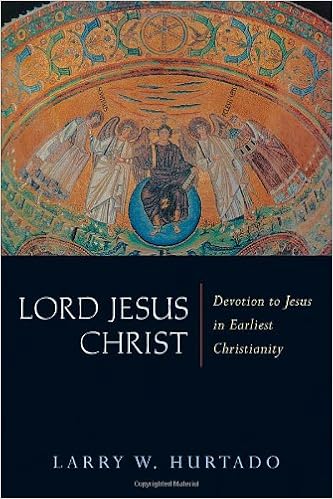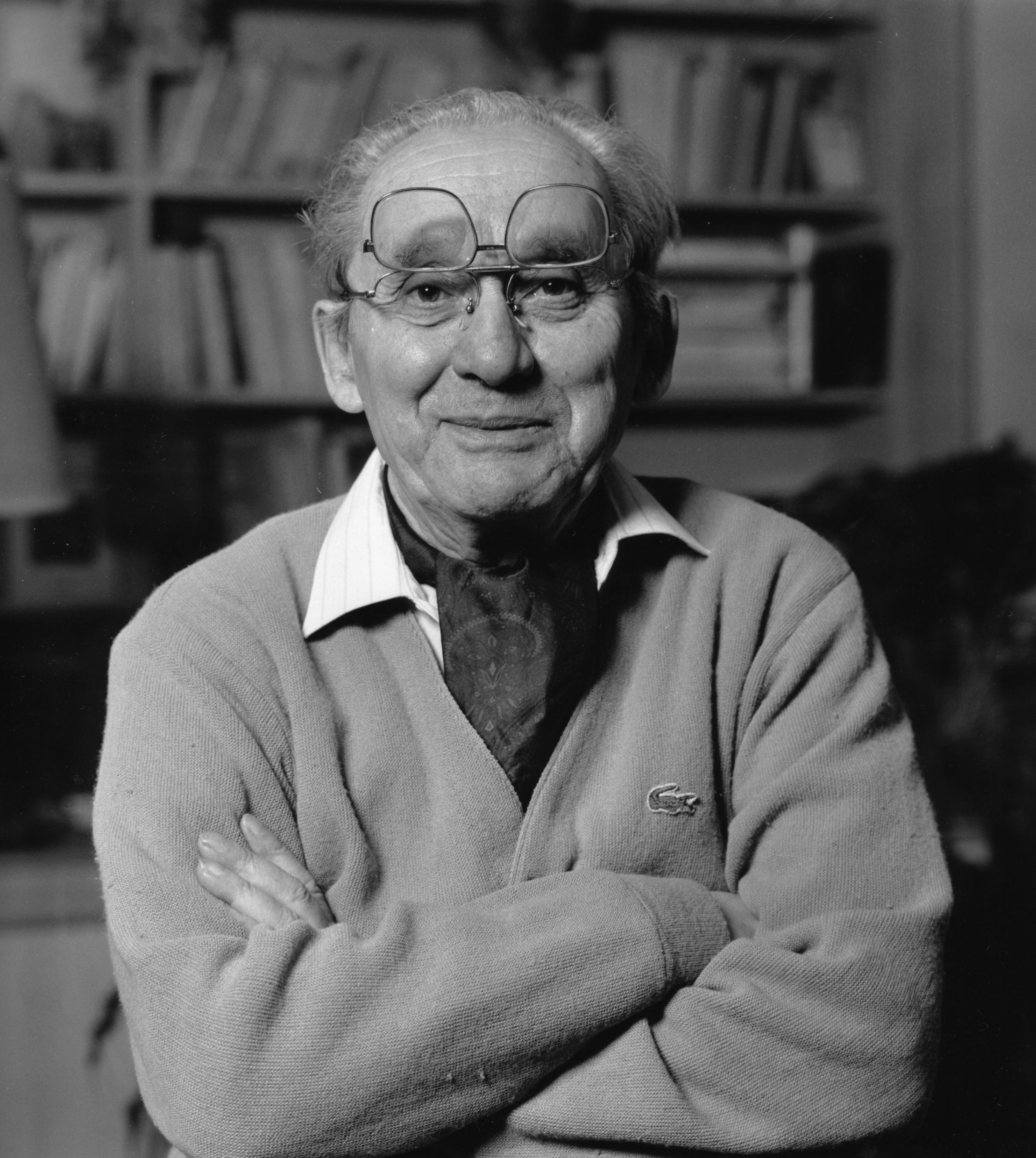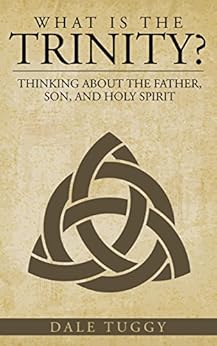YES AT LAST we will attempt to respond to Hurtado's second chapter of his great book Lord Jesus Christ: Devotion to Jesus in Earliest Christianity (LJC). For anyone new to this series, a recommendation from the author himself is available here and a summary of material covered thus-far is available here.
To avoid the burdensome feel of a huge series, I have decided to reset the counter. Instead of stating "Part 16", I have entitled it S2 Part 1; the S standing for Series 2, these series roughly corresponding to the 10 chapters of LJC. Note that since not all are necessary in the depth I am giving here for the research purposes of my own work around Mutated Faith and the Triune Hub, it is unlikely that I will be covering all 10 in this fashion.
A final word of introduction is necessary to point out that I am in the midst of a couple of other things on the blog, not least of which is an exchange with author Dr Dale Tuggy, where our dialogue can be traced Dialogue with Dr Dale Tuggy: here, here and here. It's his turn to respond, and I am expecting it to be a corker (at least I threw everything I had at my last contribution). Furthermore, I also had intended to share on the blog some more of the insights of French philosopher, Paul Ricoeur, into our quest, but I'll hold onto to that i think until the relevant time. His approach to phenomenology will be crucial to helping us understand how a religion could shift from a binitarian/trinitarian something to a binitarian/trinitarian God.
Also, in the current chapter but also elsewhere, other interruptions to LJC have been planned for a while, when for instance our author will turn to Q, John the Baptist and the "Son of Man" literature. At these points, we will see read up on some other literature that will not necessarily support the positions taken by Hurtado in LJC. But God willing, we will try to see the book through despite these inevitable interruptions (better to consider them interactions).
So let's open Chapter 2. Hurtado wants to start testing his thesis he laid out in Chapter 1 chronologically, beginning with Paul. Although Paul is not considered representative of the first "wave" of Christianity as his writings date typically from the 50s-60s, they are the earliest direct and undisputed source we have to the form of earliest Christianity. He nonetheless affirms with the majority of scholars I have read on the period that: the emergent Christian movement were made up of Jewish adherents in Jerusalem and elsewhere in Roman Judea (Palestine) pp. 79-80. Hurtado also points out the importance of these epistles in their efforts to maintain the bridge between the gentile converts and the Jewish roots of the church with which he is still in close relationship and from within which he is at pains to remind people that his own dramatic conversion experience took place. It is important for proponents of "mutation" metaphors like myself to make abundantly clear that personal conversion to Christ is not at all equivalent to "converting from Judaism to Christianity". It was perfectly acceptable, like for Jesus himself, to be a true follower of God as a Jew. The big question for the early church was now how to interpret that huge body of holy literature around the events of Christ and the Holy Spirit's outpouring.
Since the Triune Hub presentation will be taking the writings of John Dominic Crossan very seriously on the specific mutation of the collaborative kingdom (as opposed to interventionist), I need to be particularly attentive as to when he and Hurtado disagree on other matters (see p. 82). but the issue is more methodological - Crossan wants to "bracket out" Paul in order to focus on this earlier stage of Christianity, something which Hurtado considers pretty impossible. Furthermore, Paul's deep personal association with the early Christian movement during those formative years alluded to in some of his brief biographical sections in his epistles can provide us further insights into that period. His reasons for starting with Paul in bullet form then (with my emphasis):
To avoid the burdensome feel of a huge series, I have decided to reset the counter. Instead of stating "Part 16", I have entitled it S2 Part 1; the S standing for Series 2, these series roughly corresponding to the 10 chapters of LJC. Note that since not all are necessary in the depth I am giving here for the research purposes of my own work around Mutated Faith and the Triune Hub, it is unlikely that I will be covering all 10 in this fashion.
A final word of introduction is necessary to point out that I am in the midst of a couple of other things on the blog, not least of which is an exchange with author Dr Dale Tuggy, where our dialogue can be traced Dialogue with Dr Dale Tuggy: here, here and here. It's his turn to respond, and I am expecting it to be a corker (at least I threw everything I had at my last contribution). Furthermore, I also had intended to share on the blog some more of the insights of French philosopher, Paul Ricoeur, into our quest, but I'll hold onto to that i think until the relevant time. His approach to phenomenology will be crucial to helping us understand how a religion could shift from a binitarian/trinitarian something to a binitarian/trinitarian God.
Also, in the current chapter but also elsewhere, other interruptions to LJC have been planned for a while, when for instance our author will turn to Q, John the Baptist and the "Son of Man" literature. At these points, we will see read up on some other literature that will not necessarily support the positions taken by Hurtado in LJC. But God willing, we will try to see the book through despite these inevitable interruptions (better to consider them interactions).
So let's open Chapter 2. Hurtado wants to start testing his thesis he laid out in Chapter 1 chronologically, beginning with Paul. Although Paul is not considered representative of the first "wave" of Christianity as his writings date typically from the 50s-60s, they are the earliest direct and undisputed source we have to the form of earliest Christianity. He nonetheless affirms with the majority of scholars I have read on the period that: the emergent Christian movement were made up of Jewish adherents in Jerusalem and elsewhere in Roman Judea (Palestine) pp. 79-80. Hurtado also points out the importance of these epistles in their efforts to maintain the bridge between the gentile converts and the Jewish roots of the church with which he is still in close relationship and from within which he is at pains to remind people that his own dramatic conversion experience took place. It is important for proponents of "mutation" metaphors like myself to make abundantly clear that personal conversion to Christ is not at all equivalent to "converting from Judaism to Christianity". It was perfectly acceptable, like for Jesus himself, to be a true follower of God as a Jew. The big question for the early church was now how to interpret that huge body of holy literature around the events of Christ and the Holy Spirit's outpouring.
Since the Triune Hub presentation will be taking the writings of John Dominic Crossan very seriously on the specific mutation of the collaborative kingdom (as opposed to interventionist), I need to be particularly attentive as to when he and Hurtado disagree on other matters (see p. 82). but the issue is more methodological - Crossan wants to "bracket out" Paul in order to focus on this earlier stage of Christianity, something which Hurtado considers pretty impossible. Furthermore, Paul's deep personal association with the early Christian movement during those formative years alluded to in some of his brief biographical sections in his epistles can provide us further insights into that period. His reasons for starting with Paul in bullet form then (with my emphasis):
- Pauline Christianity is the earliest form of the Christian movement to which we have direct access from undisputed firsthand sources.
- Paul's letters... also incorporate and reflect emergent Christian traditions of belief and religious practice from still earlier years.
- Paul's own associations with Christian circles, which include important Jewish Christian figures such as Peter, James the brother of Jesus, Barnabas, and others, go back to this conversion, which is to be dated approximately 32-34, and so his acquaintance with beliefs and practices of Christian circles is both wide and extremely early.
- Several of Paul's letters reflect disagreements between him and other Christians, in particular, some Jewish Christians with different views of the terms for full acceptance of Gentile converts, making Paul's writings our earliest and most unambiguous evidence that there was a certain diversity of beliefs and groups in the earliest decades of Christianity, and also our best indication of the nature of this diversity and whatever commonality linked the groups.
- The Christ-devotion attested in Paul's letters amounts to a notable development in the history of religions, especially when set in the context of the Jewish religious tradition and the larger Roman-era religious environment, and his letters exhibit this development as having already taken place at a remarkably early point
- Finally, the place of Christ in the Pauline letters also anticipates, represents, and likely helped to promote the Christological beliefs and devotional practices that came to be widely characteristic in Christian groups after Paul. (p. 85-86)
Makes sense to me.









